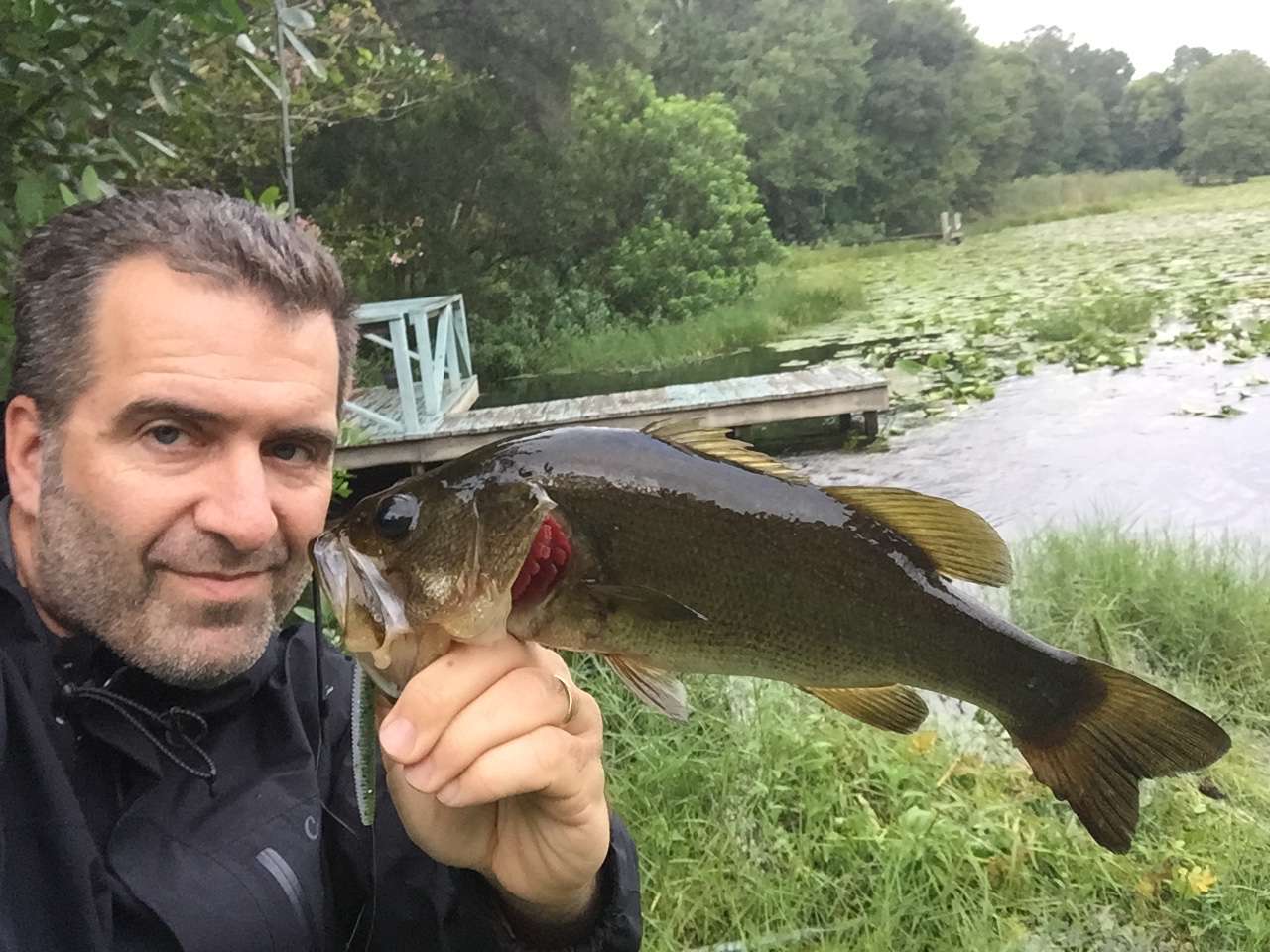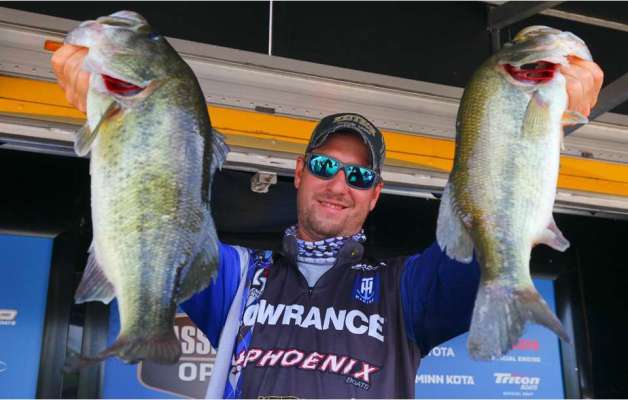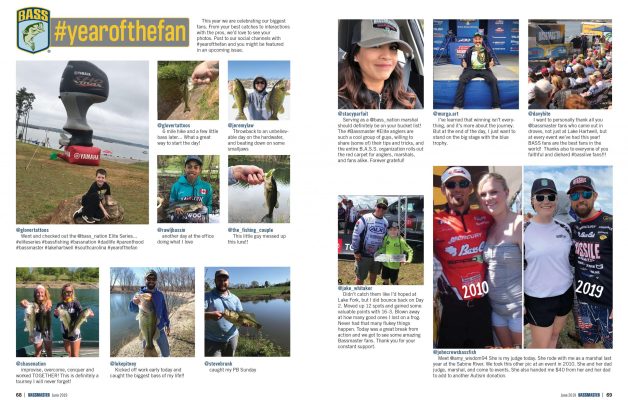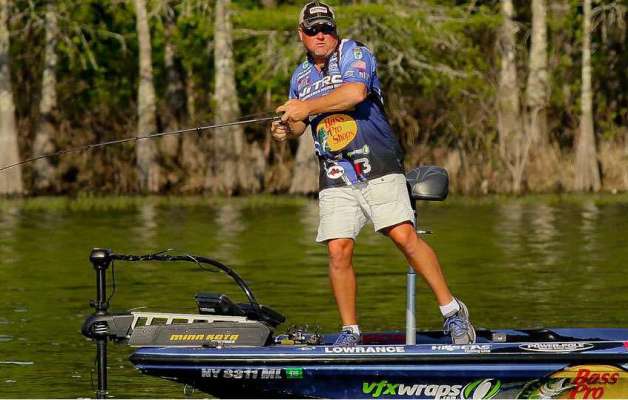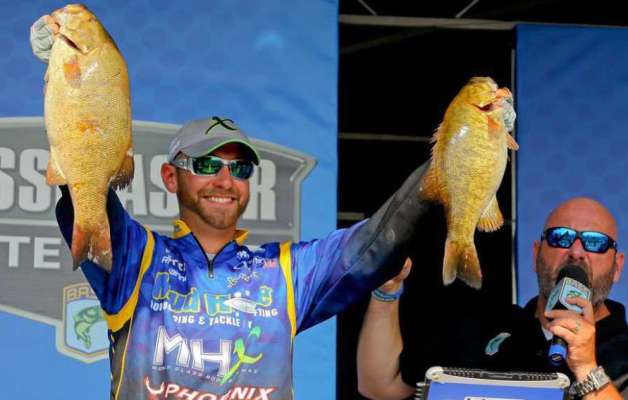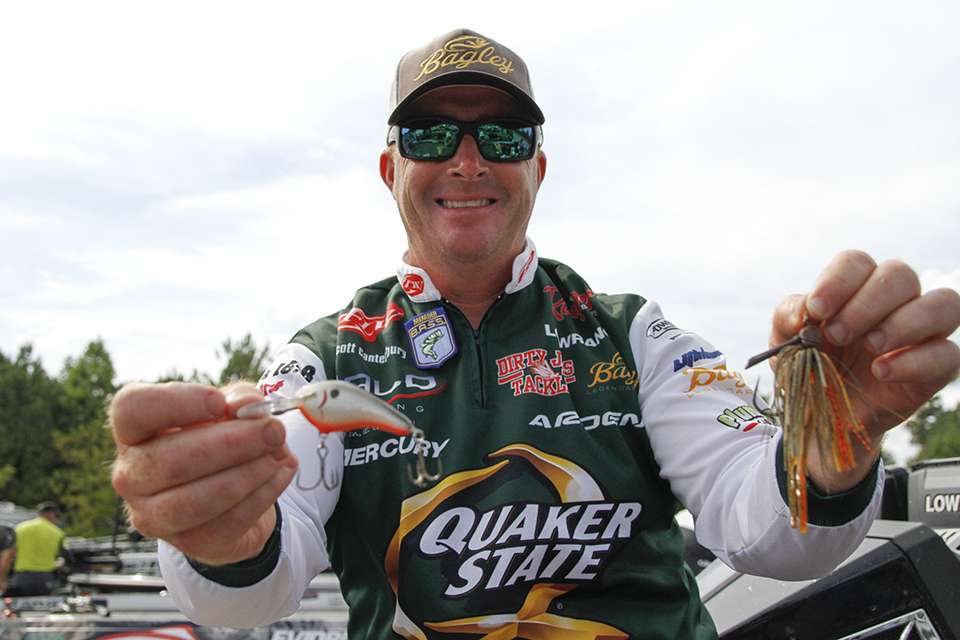
It’s not uncommon to hear anglers talk about “building” their fishing career, but for Scott Canterbury, construction has played a significant role in leading him to his present course. Making his Bassmaster Elite Series debut in 2019, the affable angler from Odenville, Ala., brings to the table a decidedly modest, yet consistent style that has yielded 42 top 10 finishes in FLW competition, including two wins and $1.3 million in career earnings.
His father, Danny, worked for Birmingham Steel, so at 16, Canterbury found his way into construction work and eventually expanded into residential renovations. He also spent four years with U.S. Steel and worked in plumbing — as an employee and a small business owner.
Basically, when he wasn’t in school or fishing, Canterbury was building or fixing something. Of course, being handy with tools extends past the job site, and Canterbury’s repair skills have helped him salvage many days threatened by mechanical mishaps.
More importantly, his early mindset instilled in him a diligence that translates across professional and recreational boundaries.
“Just putting in the time and hard work helps out in any career, whether you’re trying to learn how to plumb or learn how to frame a house or learn how to flip a jig,” Canterbury said.
‘Pipe’ dream
Admittedly, Canterbury says he had entertained an interest in professional fishing since his childhood fascination with Bassmasters TV. At age 10, joining his dad in a company tournament inspired him to participate in multiple events throughout his teen years.
From multiple weekday nighters to club tournament youth divisions, Canterbury was a regular on the Coosa River scene. Nevertheless, his blue collar roots instilled in him an endearing humility that, initially did not include him making a living with a rod and reel.
“I wanted to do it my whole life, I just never thought it would be possible,” he said. “Being from a family that was in construction, I just thought you had to work. I never dreamed I’d be able to do what I love doing for a living.”
That all changed when Barry Isbell, who owned the plumbing company where Canterbury worked, recognized the young angler’s success in FLW’s regional series and encouraged his ambition.
“My boss was also my fishing partner in local tournaments and he asked me ‘You’re going to fish the Tour, aren’t you?’” Canterbury recalled. “I was like ‘Nah, I can’t afford it,’ but we worked out a deal and he helped me get started by loaning me the money for entry fees.”
“He traveled with me my rookie year as a co-angler and won a tournament, and I ended up being Rookie of the Year. I probably never would have done it if that hadn’t have worked out. After that, I did it on my own for a couple of years, and then I was able to build sponsors.”
Looking back, Canterbury realizes that his initial hesitancy had no roots in self doubt; rather, it was a matter of accountability to the family he and wife Dixie had started.
“I was married and had a 4-year-old daughter (Taylor) the year I started as a pro, and I wouldn’t jeopardize putting food on the table to chase a dream,” he said. “But it has worked out, and I’ve been super blessed. It has been a dream come true for me.
“I made $90,000 in a three-week period, and I was plumbing at the time, making about $50,000 a year working my tail off. At that point, I really knew what I wanted to do for a living.”
Lasting lessons
Canterbury’s father always checked him out of school for a birthday rod-bending trip, but it was his Uncle Clyde who introduced him to the crappie fishing he now enjoys during his offseasons. Canterbury says that learning to detect light-biting slabs has made him a more perceptive bass angler.
Ask him about a memorable bass and Canterbury describes impatiently slinging a worm off the back of his uncle’s crappie boat and catching a 7-pounder. But ask him about important bass lessons, and he’ll tell you it’s all about the current.
“I grew up fishing on the upper end of all the Coosa River lakes, but the majority of my fishing was in the tail race of Logan Martin, which is the upper end of Lay Lake,” he said. “I learned how to fish in the current and how to determine if my bait was washing over a limb or if a bass was biting it.
“Then, I learned how to fish on the lake where there wasn’t (as much) current, and if you can detect a bite with your jig washing through trees in current, you can detect a bite anywhere. One thing that really honed my skills was learning how to fish in that current. Then, it made everything else easier.”
Canterbury admits his early focus on shallow, visible cover presented a steep learning curve for offshore fishing acumen necessary for mastering many of the nation’s top fisheries. But make no mistake, Canterbury has worked hard at developing a well-rounded skill set that he’s eager to prove during the 2019 Elite season.
“Making the change (to the Elites) is good; I’m excited about it and I’m looking forward to it,” Canterbury said. “When I started fishing the Tour in 2008, I was fishing with all the people I grew up watching. I let the moment get to me a little bit and the first day I fished an FLW Tour event I zeroed.
“I don’t think I’ll let the moment get to me in 2019. This is what I do now, so I’m ready to get it started.”

